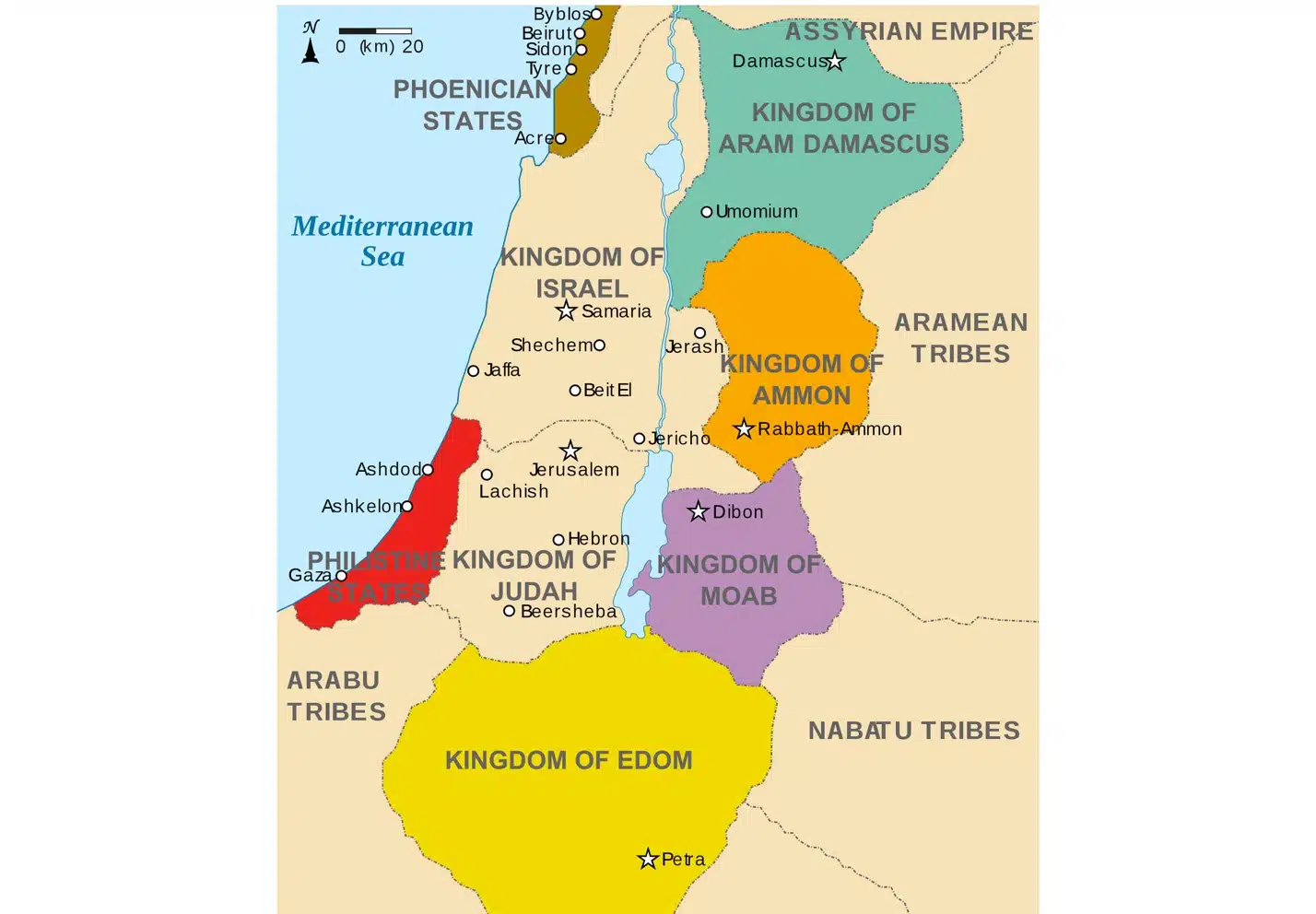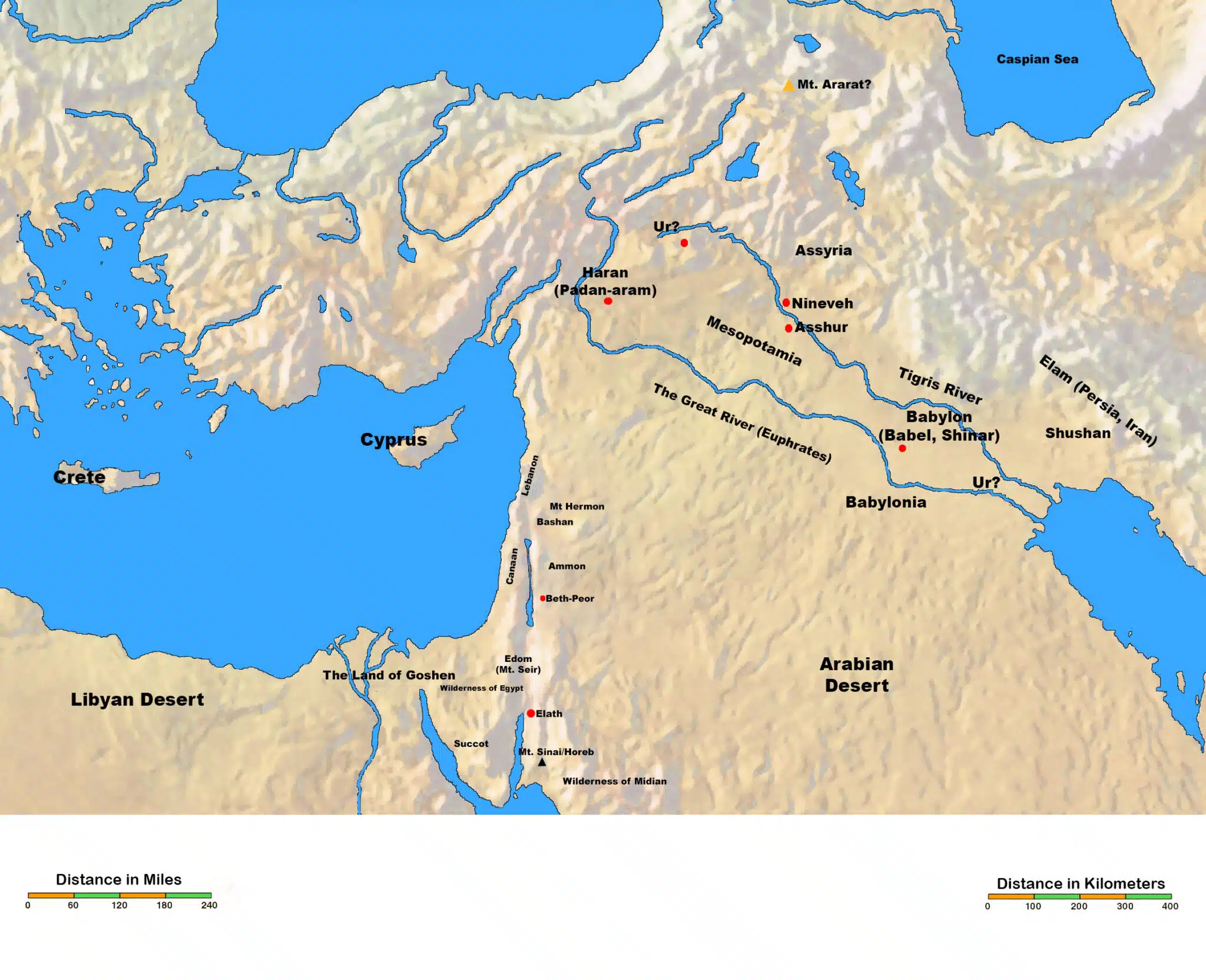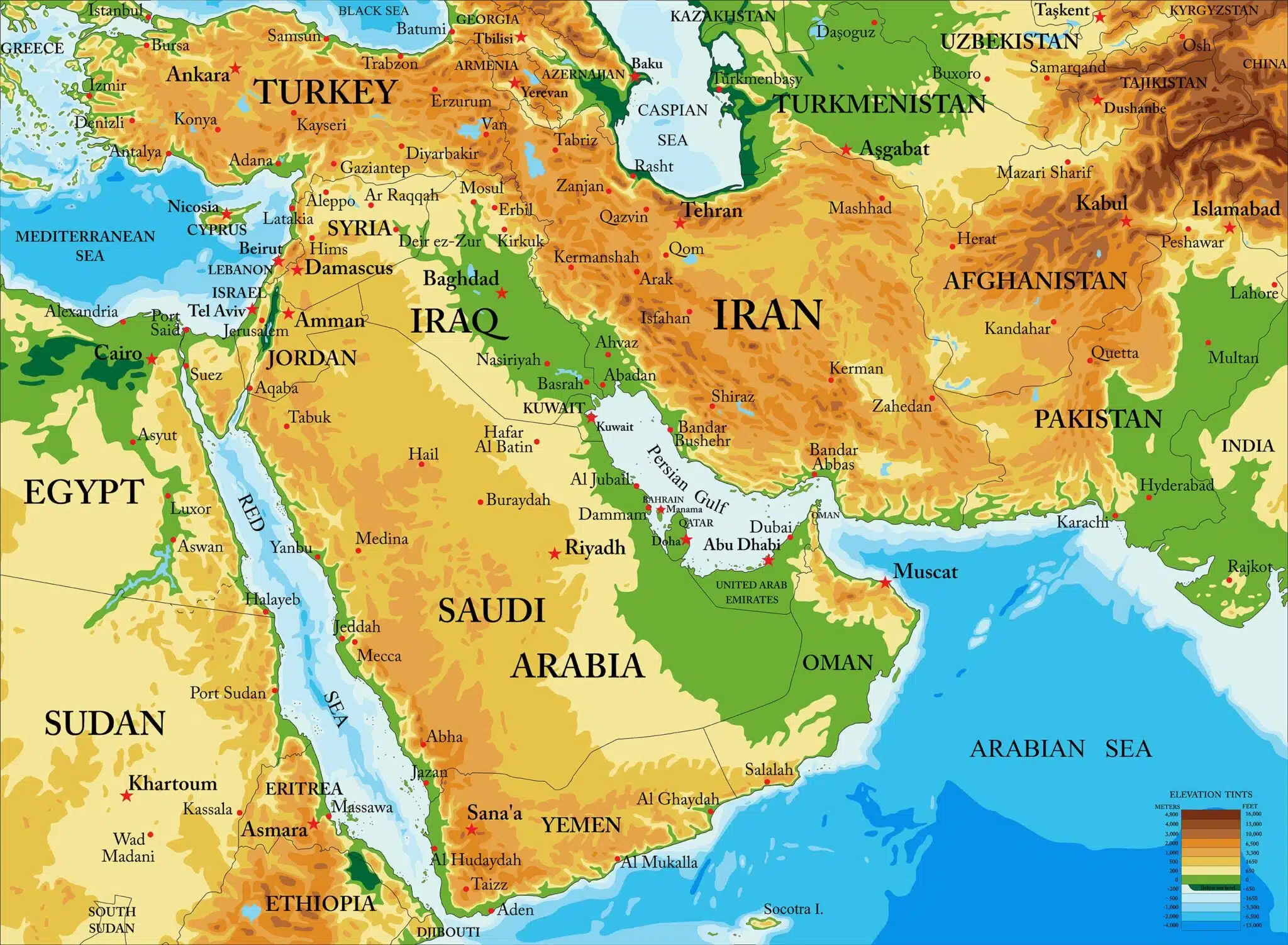The next day, the older sister convinced the younger sister to do what she had done the night before. Again, Lot was given too much wine and the younger daughter had sexual relations with him. Lot was unaware of this event also. The two daughters became pregnant. The oldest daughter named her son Moab and he became the father of the Moabites. The younger daughter’s son became the father of the Ammonites.
Here the firstborn daughter urged her younger sister to follow her scheme, to make him drink wine tonight also; then you go in and lie with him, that we may preserve our family through our father. So the younger daughter did the same, making her father drink wine…and lay with him. Lot did not know when she lay down or when she arose. Both of Lot’s daughters were with child by their father.
The oldest bore a son and called his name Moab. The name Moab means “from my father.” Moab was the father of the Moabites. The territory of Moab was east of the Dead Sea between the Zered River and the Arnon River. It was largely a mountainous terrain. The Moabites are mentioned over 190 times in the Bible. They usually had hostile relationships with the Israelites (Judges 3: 12-30; 2 Samuel 8:2-12; 2 Kings 4:3-27).
Sometimes there were instances of influence on the Israelites. Moab Women seduced some Israelites during the wilderness wandering period at Baal of Peor (Numbers 25:1-9). However, the union of Ruth (a Moabitess) and Boaz reconciled the alienated families of Lot and Abraham, which provided Israel’s greatest king, David (Ruth 1:1-22, 4:13, 17-22). The Moabites were defeated by the power of the Assyrians, Babylonians, and Persians.
The younger daughter also bore a son and called his name Ben-ammi. Ben-ammi means “son of my kinsmen.” Ben-ammi was the father of the sons of Ammon. The Ammonites were part of the inhabitants of Canaan when Israel conquered the land. They lived east of the Jordan between the Arnon and Jabbok rivers. Their capital city was Rabbah. The Ammonites were hostile toward Israel (Judges 3:13, 10:9-10, 11:4-36). Interestingly, King Solomon submitted to the lure of Molech, the god of Ammon. He built a high place to burn incense and sacrifice to Molech to please his foreign wives (1 Kings 11:7-8; Jeremiah 32:35). The worship of Molech included sacrifice of babies, and was particularly loathed by God (Leviticus 18:21; 20:2-5; Jer 32:35).
The fact that Lot’s two daughters are not named gives us a clue that they were taken out of Sodom, but Sodom was not taken out of them. Their actions and attitudes seem to have laid a foundation for societies that produced substantial evil. However, God desires to redeem all of humanity. Rahab was a Canaanite and the mother of Boaz, and Ruth was a Moabitess and was the wife of Boaz and the grandmother of king David (Matt 5:1).
Both the Moabites and the Ammonites would become enemies of Abraham’s descendants (Genesis 36:35; Judges 3:13,29; Deuteronomy 2:37; 1 Samuel 11:2, 14:47; 2 Chronicles 20:1).
Biblical Text
34 On the following day, the firstborn said to the younger, “Behold, I lay last night with my father; let us make him drink wine tonight also; then you go in and lie with him, that we may preserve our family through our father.” 35 So they made their father drink wine that night also, and the younger arose and lay with him; and he did not know when she lay down or when she arose. 36 Thus both the daughters of Lot were with child by their father. 37 The firstborn bore a son, and called his name Moab; he is the father of the Moabites to this day. 38 As for the younger, she also bore a son, and called his name Ben-ammi; he is the father of the sons of Ammon to this day.
Check out our other commentaries:
-
Matthew 16:24-28 meaning
Jesus concludes His revelatory conversation with His disciples In Caesarea Philippi by informing them that they too must die if they are to follow Him....... -
Matthew 16:21-23 meaning
Jesus continues His significant private conversation with His disciples In Caesarea Philippi. After Jesus acknowledges His identity as both God and Messiah to His disciples,...... -
Exodus 8:20-32 meaning
Starting in 8:20, the second cycle of plagues begins. The first in this cycle, the fourth plague (8:20-32) involves an infestation of flies. ...... -
Daniel 5:20-21 meaning
Daniel further reminds Belshazzar that Nebuchadnezzar was humiliated by God because of his pride. For seven years, the king lived like a wild animal, until...... -
Exodus 20:7 meaning
In the 3rd commandment, the LORD prohibits the association of God’s holy name to something that is common. He promises that the offender would be......





